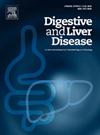移植病人的社会福利需要:一种新的处理方式
IF 3.8
3区 医学
Q1 GASTROENTEROLOGY & HEPATOLOGY
引用次数: 0
摘要
背景随着需要实体器官移植的患者数量的增加以及患者群体的民族志、人类学和社会变化,在移植前筛查中分析患者的社会需求变得很有必要。这些需求可能包括缺乏照顾者、不稳定和不合适的住房、缺少身份证件、卫生官僚机构的挑战、交通和财政资源不足。因此,得益于与Sant'Orsola基金会的合作,在2024年2月,医院内的第一个福利服务台专门用于满足移植患者的社会心理需求。方法回顾性分析美国器官移植患者福利协会(WELT)在2024年收集到的请求。目前的项目设想在医院内建立一个专门的服务,以支持患者在移植过程中。社会支持台被整合到位于博洛尼亚的ircc - azienda Ospedaliero-Universitaria的移植护理途径中,并将涉及临床医院心理学服务,治疗严重器官衰竭的内科手术单元,肝胆外科和移植,s.s.d心力衰竭和移植,肺移植项目以及肾脏学,透析和移植的复杂结构。结果本研究处于起步阶段。入选将包括对大约120名患者的分析,以确定社会需求和解决这些需求的选择。结论社会支持台在医院的预期效果包括:由熟练的专业人员对患者的社会需求进行及时有效的管理;改善可及性和缩短移植过程的持续时间;更全面的心理评估;在不增加患者负担的情况下实施服务;对移植前后患者身心健康的有益影响。本文章由计算机程序翻译,如有差异,请以英文原文为准。
Social and welfare needs in transplant patient: a new way to handle
Background
With the increasing number of patients in need of solid organ transplantation and the ethnographic, anthropological, and social changes in the patient population, it has become necessary to analyze the social needs of the patients during a pre-transplant screening. These needs may include the lack of a caregiver, unstable and unsuitable housing, missing identification documents, challenges with health bureaucracy, transportation and insufficient financial resources. Thus, in February 2024, thanks to the collaboration with the Sant'Orsola Foundation, the first welfare desk within a hospital dedicated to the psychosocial needs of transplant patients was inaugurated.
Methods
The retrospective research will concern the analysis of the requests collected during 2024 from the Welfare for Transplant patients (WELT). The current project envisions the establishment of a dedicated service within the hospital to support patients during their transplant journey. The social support desk is integrated into the transplant care pathways of the IRCCS-Azienda Ospedaliero-Universitaria in Bologna and will involve the S.S. Service of Clinical Hospital Psychology, the operative units of Internal Medicine for the Treatment of Serious Organ Failure, Hepatobiliary Surgery and Transplantation, the S.S.D. Heart Failure and Transplantation, the Lung Transplantation Program and the Complex Structure of Nephrology, Dialysis and Transplantation.
Results
This research is in the start-up phase. The enrollment will include the analysis of approximately 120 patients to define the social needs and the options for solving them.
Conclusions
The anticipated effects of the social support desk within the hospital include: a prompt and effective management of patients' social requirements by skilled professionals; improved accessibility and decreased duration of the transplant process; a more comprehensive psychological assessment; the implementation of services without burdening the patients; a beneficial influence on the physical and psychological well-being of patients before and after transplantation.
求助全文
通过发布文献求助,成功后即可免费获取论文全文。
去求助
来源期刊

Digestive and Liver Disease
医学-胃肠肝病学
CiteScore
6.10
自引率
2.20%
发文量
632
审稿时长
19 days
期刊介绍:
Digestive and Liver Disease is an international journal of Gastroenterology and Hepatology. It is the official journal of Italian Association for the Study of the Liver (AISF); Italian Association for the Study of the Pancreas (AISP); Italian Association for Digestive Endoscopy (SIED); Italian Association for Hospital Gastroenterologists and Digestive Endoscopists (AIGO); Italian Society of Gastroenterology (SIGE); Italian Society of Pediatric Gastroenterology and Hepatology (SIGENP) and Italian Group for the Study of Inflammatory Bowel Disease (IG-IBD).
Digestive and Liver Disease publishes papers on basic and clinical research in the field of gastroenterology and hepatology.
Contributions consist of:
Original Papers
Correspondence to the Editor
Editorials, Reviews and Special Articles
Progress Reports
Image of the Month
Congress Proceedings
Symposia and Mini-symposia.
 求助内容:
求助内容: 应助结果提醒方式:
应助结果提醒方式:


